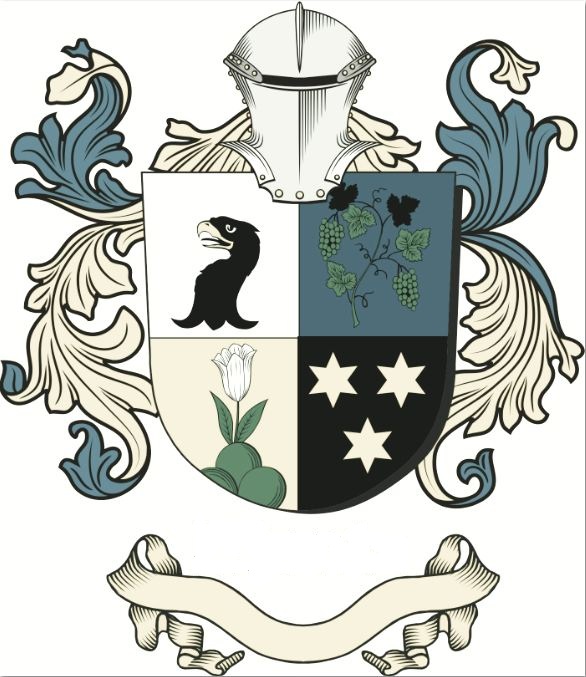Rosicrucian Society ™
Hermetic beliefsHermeticism encompasses both panentheism and Monistic-polytheism within its belief system, which teaches that there is The All, or one "Cause", of which we, and the entire universe, are all a part. Also it subscribes to the notion that other beings such as gods and angels, ascended masters and elementals exist in the Universe. Classical elementsThe four classical elements of earth, water, air, and fire are used often in alchemy, and are alluded to several times in the Corpus Hermeticum. As above, so below
"As Above, So Below" redirects here. For the Klaxons song, see As Above, So Below (song).

The Magician displaying the Hermetic
concept of as above, so below.
These words circulate throughout occult and magical circles, and they come from Hermetic texts. The concept was first laid out in The Emerald Tablet of Hermes Trismegistus, in the words "That which is Below corresponds to that which is Above, and that which is Above, corresponds to that which is Below, to accomplish the miracles of the One Thing"[19]. In accordance with the various levels of reality: physical, mental, and spiritual, this relates that what happens on any level happens on every other. This is however more often used in the sense of the microcosm and the macrocosm. The microcosm is oneself, and the macrocosm is the universe. The macrocosm is as the microcosm, and vice versa; within each lies the other, and through understanding one (usually the microcosm) you can understand the other[41 ]. ReincarnationThere are mentions in Hermeticism about reincarnation. As Hermes states:
Some[who?] say this refers to the various rebirths in one's spiritual nature, rather than the physical body. Morality, good, and evilHermes explains in Book 9 of the Corpus Hermeticum that Nous brings forth both good and evil, depending on if he receives input from God or from the demons. God brings good, while the demons bring evil. Among those things brought by demons are:
This provides a clearcut view that Hermeticism does indeed include a sense of morality. However, the word good is used very strictly, to be restricted to use to the Supreme Good, God[44 ]. It is only God (in the sense of the Supreme Good, not The All) who is completely free of evil to be considered good. Men are exempt of having the chance of being good, for they have a body, consumed in the physical nature, ignorant of the Supreme Good[45 ]. Among those things which are considered extremely sinful, is the focus on the material life, said to be the only thing that offends God:
It is troublesome to oneself to have no "children". This is a symbolic description, not to mean physical, biological children, but rather creations. Immediately before this claim, it is explained that God is "the Father" because it has authored all things, it creates. Whether father or mother, one must create, do something positive in their life, as the Supreme Good is a "generative power". The curse for not having "children" is to be imprisoned to a body, neither male (active) nor female (thoughtful), leaving that person with a type of sterility, that of being unable to accomplish anything[47 ]. CosmogonyThe tale is given in the first book of the Corpus Hermeticum by God's Nous to Hermes Trismegistus after much meditation. It begins as the ALL creates the elements after seeing the Cosmos and creating one just like it (our Cosmos) from its own constituent elements and souls. From there, the ALL, being both male (Divine Father) and female (Universal Mother), holding the Word (the logos), gave birth to a second Nous, creator of the world. This second Nous created seven powers, or deities, (often seen as Mercury, Venus, Mars, Jupiter, Saturn, the Sun and the Moon) to travel in circles and govern destiny. The Word then leaps forth from the materializing elements, which made them unintelligent. Nous then made the governors spin, and from their matter sprang forth creatures without speech. Earth then was separated from Water and the animals (other than Man) were brought forth from the Earth. The Supreme Nous then created Man, androgynous, in his own image and handed over his creation. Man carefully observed the creation of his brother, the lesser Nous, and received his and his Father's authority over it all. Man then rose up above the spheres' paths to better view the creation, and then showed the form of the ALL to Nature. Nature fell in love with it, and Man, seeing a similar form to his own reflecting in the water fell in love with Nature and wished to dwell in it. Immediately Man became one with Nature and became a slave to its limitations such as gender and sleep. Man thus became speechless (for it lost the Word) and became double, being mortal in body but immortal in spirit, having authority of all but subject to destiny. The tale does not specifically contradict the theory of evolution, other than for Man, but most Hermeticists fully accept evolutionary theory as a solid grounding for the creation of everything from base matter to Man[48 ]. |

© Copyright Societas Rosicruciana.com , 2008-2020 All Rights
Reserved
Home Join Manifesto History Degrees Society Contact High Degrees Rose Croix Degrees Rosicrucian References Resources Masonic Rosicrucian Degrees History Hermetic Beliefs The Magus Temple of Rosy Cross Prosperity Contact Society Confessio Fama Text Societas Rosicruciana Rosicrucian Thought Force Character Audio Books
